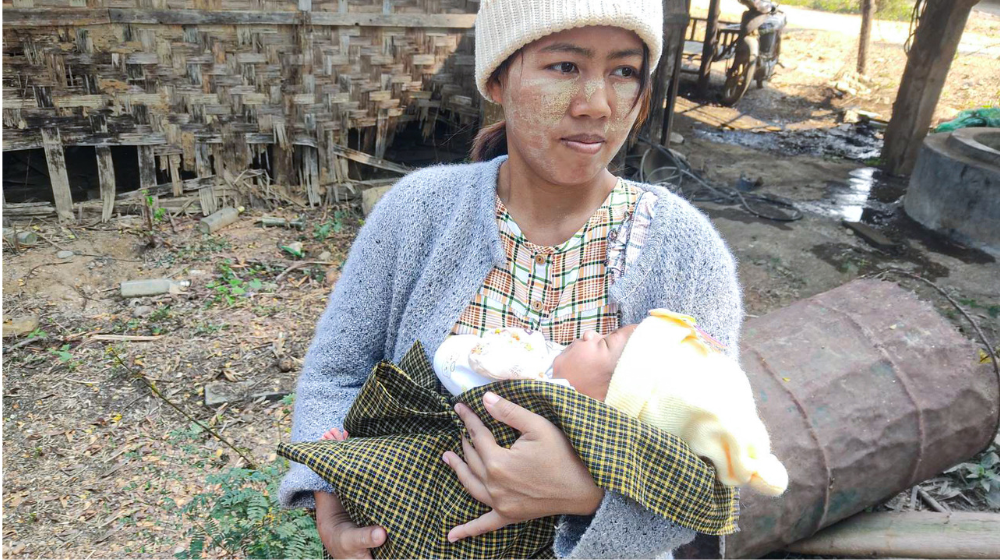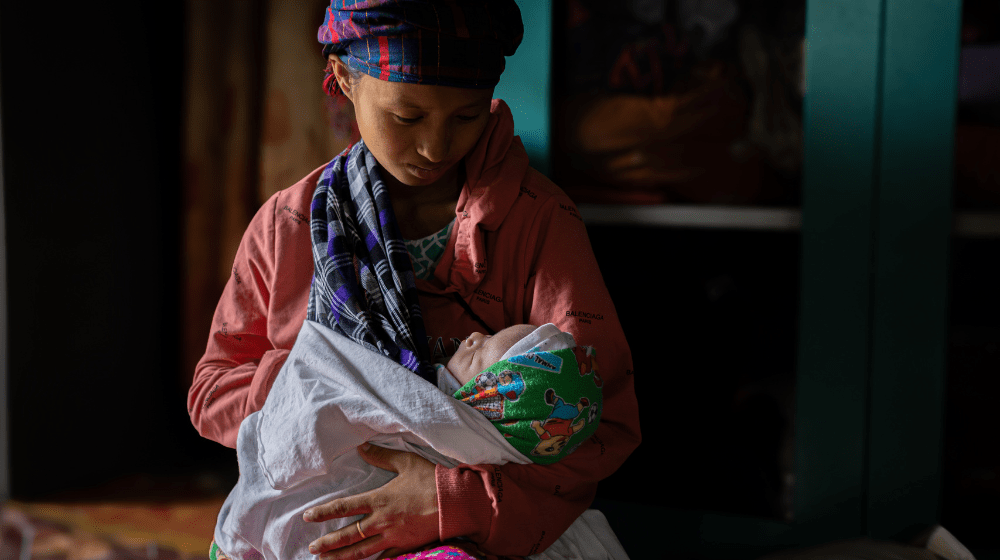"Ever since I reached three months into my pregnancy, I've been fleeing my village due to frequent armed clashes. The displacement has made it impossible for me to continue farming, leaving me without any income to take care of my health during pregnancy. As a displaced woman, the constant worry of ensuring a safe delivery looms over me," *Hla, a 31-year-old pregnant woman from the Sagaing region, one of Myanmar's most conflict-affected areas, told.
The conflict in Myanmar has led to a significant economic downturn, with countless individuals losing their livelihoods. According to the 2024 Myanmar Humanitarian Needs and Response Plan, 1.4 million women and girls are in need of health assistance across the country in 2024. The ongoing strife has led to a dramatic surge in the number of internally displaced people (IDPs), reaching more than 3 million by the early of May, up from 2.6 million at the beginning of the year. Amidst this conflict, the challenge of accessing basic healthcare has become insurmountable for many, particularly for pregnant women. The fear of childbirth without proper medical care is a grim reality for those living in conflict-intensified areas. "The thought of going into labor without any assistance was terrifying. With the hospitals so far away and the roads unsafe, I didn't know how I would make it," *Hla added.
Recognizing the dire need, UNFPA, with the support of local partners, offers a lifeline through financial assistance for referral support. This involves identifying pregnant women in affected areas, providing them with financial assistance, and facilitating their safe transportation to hospitals. "When I learned about the support, it felt like a heavy burden being lifted off my shoulders. It gave me and my baby strength and ray of hope," *Hla expressed her relief and gratitude. This financial assistance is critical in ensuring that pregnant women can have safe deliveries, even in the midst of such challenging times.
This initiative is part of a broader effort by UNFPA, which in 2023 helped over 2,000 pregnant women affected by conflict through the referral support. In 2024, UNFPA aims to assist 4,800 women and girls with cash referral support for accessing emergency obstetric care, including safe deliveries. This work is crucial for preventing maternal deaths, especially in humanitarian crises.
*Hla's story represents many women in Myanmar who need maternal healthcare. The assistance provided by UNFPA, funded by the Central Emergency Response Fund (CERF), is vital for saving lives. Yet, as the conflict worsens, the need for humanitarian access grows, emphasizing the urgency to reach these women.

"Knowing that there is someone to help us during such a difficult time is more than just relief, it's a lifeline. It makes us feel that we are not forgotten, and protected in the situation where everything else seems so uncertain," *Hla emotionally shared, representing the sentiment of many women affected by the conflict.
UNFPA's ongoing efforts in close collaboration with local organizations are a testament to the impact of combined actions in saving lives and ensuring safe childbirths in conflict zones. It's a call to the humanitarian community to stand together to support women and girls, particularly pregnant women in conflict-affected areas, ensuring that every childbirth is safe and that no woman dies while giving life.
* For confidentiality, names in this story have been changed.


